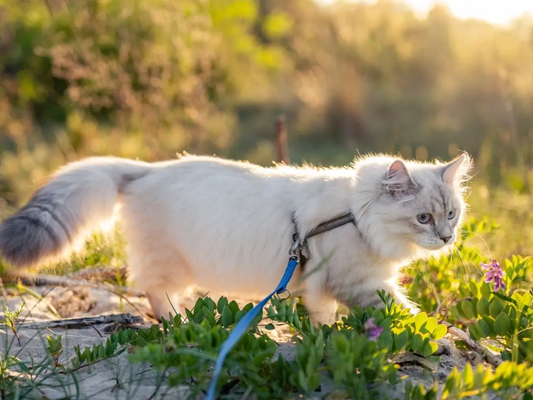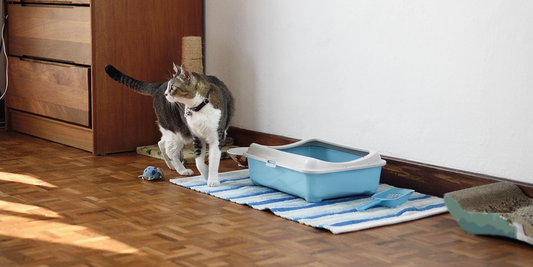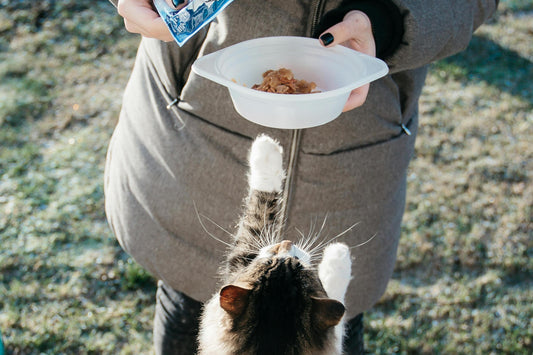Contrasting with some pets whose toilet habits necessitate significant time and energy adjustments, cats effortlessly facilitate cleanliness for their owners. Typically, most felines instinctively adopt the litter box for their elimination needs, often without requiring any formal training.
However, occasionally, cats may present a vexing challenge by urinating outside their designated litter box, undermining the very convenience it offers.
Below, we delve into potential reasons behind this behavior and offer practical strategies to rectify the issue and restore harmony in your feline's litter box habits.
Exploring Common Causes for Cats Peeing Outside the Litter Box
The following, though not exhaustive, outlines some prevalent reasons why cats might opt to urinate outside their litter box. It's crucial to contemplate each factor meticulously, acknowledging that multiple causes may simultaneously contribute to this behavior.
-
Urinary Tract Issues: Cats can encounter a spectrum of urinary tract problems, encompassing urinary crystals, bladder stones, kidney disease, and idiopathic cystitis (an inflammation of the bladder or lower urinary tract without a clear underlying cause). These conditions can be excruciating, necessitating prompt veterinary attention.
-
Diabetes: Diabetes, a condition marked by insufficient insulin production to regulate blood sugar levels, can alter feline urinary patterns. Notably, increased thirst and urination frequently herald this condition's onset.
-
Liver Dysfunction: Your cat's liver performs vital functions, including bile production and toxin removal from the bloodstream. Consequently, liver disease can manifest diversely, with some cats experiencing jaundice while others exhibit increased urination, potentially leading to litter box challenges.
-
Arthritis: Prevalent among senior cats, arthritis can indirectly contribute to litter box avoidance. It's not because arthritic cats need to urinate more but because accessing the litter box or adopting a comfortable urinating position may be physically challenging due to joint pain.
-
Cognitive Decline: Also known as "senility," cognitive dysfunction in cats is a natural yet distressing consequence of aging. It's heartbreaking not only because it's distressing for your feline friend but also because there are limited interventions to fully address the issue.
-
Cancer: Perhaps the most alarming potential underlying factor for cat owners, cancer can manifest in urinary or behavioral changes, including litter box issues. It's crucial not to overlook this possibility, as early diagnosis often leads to more favorable treatment outcomes. Vigilance is key, especially if accompanied by other suspicious symptoms like unexplained lumps, abdominal distention, or anorexia.
-
Stress and Anxiety: Analogous to humans, cats are prone to stress and anxiety, which can manifest in various ways, from aggression and excessive vocalization to alterations in grooming patterns. Notably, changes in elimination behavior, particularly urinating or defecating outside the litter box, are common indicators of stress and anxiety.
-
Environmental Alterations: Significant changes within the home environment can significantly disrupt a cat's routine, triggering litter box issues. This could encompass anything from introducing a new roommate or pet to relocating to a new residence. Cats may struggle to adapt to these shifts, leading to elimination challenges.
-
Litter Box Hygiene: It's no surprise that a dirty litter box is a common reason for cats to opt for alternative elimination spots. Felines are meticulous creatures and disdain using soiled litter. Reflect on why the litter box is unclean; if it's due to neglect in cleaning routines, simply adjust your habits. However, if your cat is using the litter box more frequently than usual, it could signal an underlying health concern that merits attention.
-
Location Matters: Cats can be finicky about the positioning of their litter box, sometimes refusing to use it if they dislike its location or even its orientation within the room. This is often observed after rearranging furniture but can also occur unexpectedly.
-
Litter Box Preferences: Cats exhibit preferences when it comes to their litter boxes, and owners may be surprised to find that a newly purchased litter box doesn't meet their feline's standards. Abrupt changes, such as switching from an open to an enclosed model or introducing a self-cleaning litter box (whose noises may frighten some cats), can lead to rejection.
- Litter Selection: Cats are known for their discerning tastes, and litter is no exception. Some cats may reject a litter that smells like potential food items, as they prefer not to relieve themselves near feeding areas. Litters containing corn or coconut are particularly prone to causing issues in this regard.
- Lingering Odors: Cats are highly sensitive to scents, and the presence of urine smells outside the litter box can encourage them to urinate in those areas. This behavior is particularly prevalent in multi-cat households, where one cat's marking can prompt others to follow suit. It's essential to promptly clean and eliminate urine odors to discourage this behavior and maintain a harmonious feline environment.
Cat Peeing Outside the Litter Box: A Comprehensive Guide to Solving the Problem
Unfortunately, addressing litter box issues such as this isn't a straightforward task. It often necessitates a meticulous investigative process and may involve some experimentation to pinpoint the solution.
However, here are some general steps that can be highly beneficial in resolving the issue:
- Consult Your Veterinarian: As a first step, schedule an appointment with your veterinarian when your cat begins peeing outside the litter box. Many underlying medical conditions can cause this behavior, some of which are associated with significant discomfort. Eliminating potential health issues is crucial for your cat's wellbeing and will enable you to focus on other potential causes.
-
Evaluate Your Cat's Mental State:Observe whether your cat exhibits signs of stress or anxiety, such as hair loss, excessive vocalization, or altered behavior patterns. If so, identify the potential stressors and take corrective measures. For instance, if separation anxiety is the culprit, consider adjusting your schedule, utilizing a cat sitter for periodic check-ins, or creating a more calming environment.
- Consider Environmental Changes:Reflect on any recent alterations in your living environment, including the addition of new family members or pets, changes in your daily schedule, or a move to a new home. These changes can disrupt your cat's routine and trigger inappropriate urination. While patience and time may allow your cat to adapt, in some cases, reassessing the changes and restoring stability to your cat's routine may be necessary.
-
Deep Clean the Litter Box and Affected Areas:Ensure your cat's litter box is thoroughly cleaned and refilled with fresh litter. This simple step might be all it takes to resolve the issue. If your cat is urinating more frequently due to a health issue, consider increasing the frequency of litter box cleaning.
-
Eliminate Odors with Enzymatic Cleaner:If your cat continues to urinate in the same spot, use an enzymatic cleaner specifically designed to eliminate urine odors. This will help remove any triggers that may be encouraging the behavior. Always opt for pet-safe products and follow the manufacturer's instructions for optimal results.
-
Experiment with Litter Box, Litter, and Location:If your cat's inappropriate urination stems from litter box or litter preferences, embark on a trial-and-error process. Begin by making minor adjustments, like switching to a different type of litter, before progressing to more significant changes, such as replacing the litter box or altering its location. This methodical approach will help you pinpoint the most effective solution.
Discovering that your cat has been peeing outside its litter box can be a disheartening experience, but it's important to remember that many of the most prevalent causes can be tackled with relatively straightforward solutions. Prompt attention and a proactive approach are key, as neglecting the issue could potentially lead to more significant complications.
It's essential to refrain from ignoring this behavior, as some of the underlying factors might be indicative of serious health conditions that require veterinary attention. From urinary tract infections to kidney issues, a range of medical problems can manifest through inappropriate urination. Therefore, it's vital to address the situation promptly and thoroughly.
By being mindful of the potential causes and taking prompt action, you can not only resolve the immediate issue but also safeguard your cat's overall health and well-being. This might involve adjusting the litter box's location, exploring different litter types, or simply increasing the frequency of cleaning. Ultimately, the key is to be observant, proactive, and to seek professional advice when necessary.








